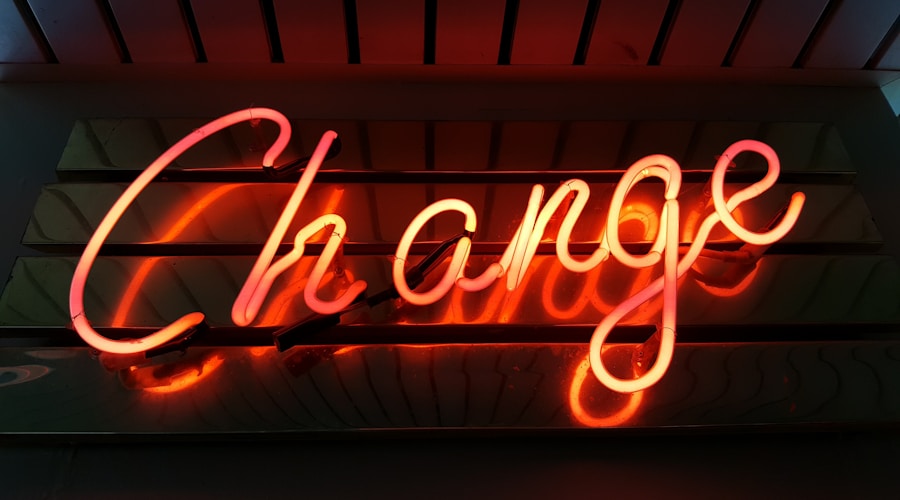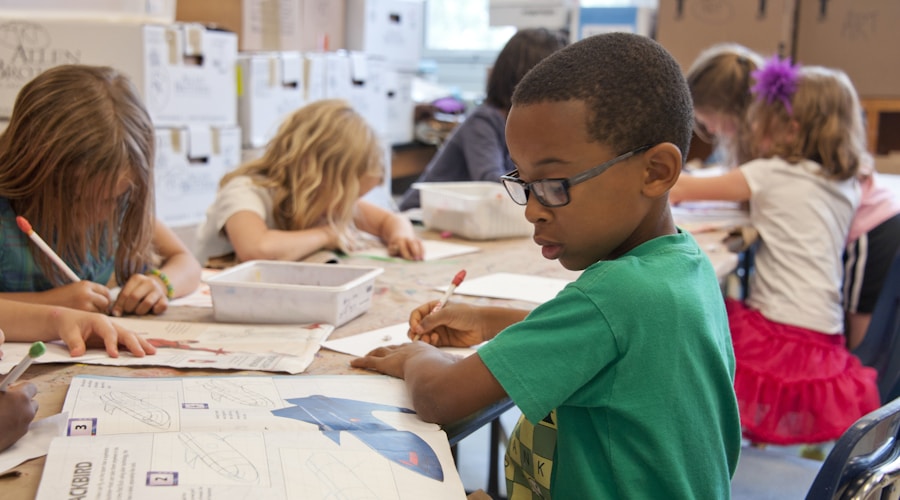Have you ever wondered how your childhood experiences impact your social behavior as an adult? The interactions and experiences you had during your formative years have a profound effect on how you relate to others, communicate, and form relationships in adulthood.
Understanding the link between childhood experiences and adult social behavior can provide valuable insight into why you behave the way you do and how you can improve your social interactions. As you delve into this article, you will gain a deeper understanding of the role childhood plays in shaping your social skills, friendships, and overall social behavior.
Let's explore the intricate connection between your childhood experiences and the way you interact with the world around you. As Maya Angelou once said, "I've learned that people will forget what you said, people will forget what you did, but people will never forget how you made them feel"1 .
Introduction to Childhood and Adult Social Behavior
Childhood and Adult Social Behavior
If you've ever wondered why some people are more outgoing and sociable while others tend to be more reserved and shy, it may surprise you to learn that a significant part of this can be traced back to their childhood experiences. Our early years play a vital role in shaping how we interact with others as adults. Whether it's the friendships we form, the social skills we learn from our families, or the impact of bullying, our childhood experiences have a lasting impact on our social behavior.
Researchers have long been intrigued by the connection between childhood experiences and adult social behavior. Psychologist Dr. Karen Pine notes, "The way we socialize with others as adults can often be traced back to the experiences we had in our early years. It's a crucial period that shapes our social behavior for years to come."
In the following sections, we'll explore the various ways in which childhood experiences influence adult social behavior. We'll delve into how early friendships shape us, the role of family in learning social skills, the impact of school on our social development, and the long-term effects of childhood bullying. We'll also discuss how you can overcome negative experiences from your past to improve your social interactions as an adult. Lastly, we'll explore the positive power of good childhood memories and how they can foster healthy social behaviors.
So, buckle up and get ready to delve into the fascinating and often overlooked influence of childhood experiences on adult social behavior. Whether you're outgoing or introverted, the puzzle pieces of your social persona may lie in the memories of your early years. It's time to unlock the secrets and gain a deeper understanding of yourself and those around you.
How Early Friendships Shape Us
Your early friendships play a pivotal role in shaping who you become as an adult. The bonds you form in childhood can have a lasting impact on your social behavior and interactions. According to psychologist Beverly Daniel Tatum, "The friendships you develop in childhood are crucial in shaping your sense of self and how you relate to others in the future".
As you navigate through childhood, the friendships you cultivate become a training ground for important social skills such as empathy, cooperation, and conflict resolution. These skills are essential for building healthy relationships in adulthood. Research by developmental psychologist Melanie Killen suggests, "Children learn to understand others' perspectives and feelings through their interactions with friends". These early experiences shape your ability to connect with others and navigate the complexities of social interactions later in life.
The friendships you form in childhood also contribute to your social identity. Psychologist Dr. Susan Pinker explains, "Children often form friendships with peers who share similar interests and values. These shared experiences help shape their identity and sense of belonging within social groups"3 . This sense of belonging and connection to others is a fundamental aspect of adult social behavior.

The Role of Family in Learning Social Skills
Your family plays a crucial role in shaping your social behavior as an adult. From a young age, you learn valuable social skills through the interactions and experiences you have with your family members. Whether it's learning how to share, communicate effectively, or resolve conflicts, these skills are foundational in shaping your social interactions later in life.
According to renowned psychologist Dr. Karen Pierce, "Children first learn about relationships and social interactions within the family unit. The dynamics and communication patterns within the family significantly impact a child's understanding of social behaviors."
School Days: A Social Learning Ground
Remember those school days when you were navigating the complex social landscape of the classroom and playground? The interactions and experiences we had during our formative years significantly shape our adult social behavior.
As children, our school experiences play a crucial role in developing our social skills and understanding of social dynamics. According to child psychologist Dr. Jodi Dworkin, "School acts as a social learning ground where children negotiate friendships, conflicts, and peer pressure, laying the foundation for their future social interactions."
Remember the Lessons
Your experiences in school, whether positive or negative, have a lasting impact on your adult social behavior. The friendships you formed, the conflicts you resolved, and the social hierarchies you navigated all contribute to shaping how you interact with others as an adult.
Dr. Christine Ball, a developmental psychologist, notes, "Peer interactions in school provide children with the opportunity to learn important social skills such as cooperation, empathy, and conflict resolution. These skills are invaluable for forming healthy relationships later in life."
Lessons from the Playground
As you reflect on your own school days, consider how your early experiences have influenced your adult social behavior. Did you learn how to empathize with others through playground conflicts? Did you develop the confidence to assert yourself in group settings? These early lessons continue to impact how you navigate social situations today.
It's essential to acknowledge the influence of school experiences on your adult social behavior. Taking a moment to reflect on the lessons learned during those formative years can help you better understand your social interactions as an adult and work towards improving them.
Learn and Grow
As you examine the impact of your school days on your adult social behavior, remember that it's never too late to learn and grow. The lessons you internalized as a child are not set in stone. You have the power to reassess and relearn healthier ways of interacting with others.
In the words of renowned educator Rita Pierson, "Every child deserves a champion – an adult who will never give up on them, who understands the power of connection, and insists that they become the best that they can possibly be." Just as we needed champions in our school days, we can now be our own champions, actively working to improve our social behavior for a more fulfilling adult life.
The Effect of Childhood Bullying on Adult Life
Bullying is a pervasive issue that can have a lasting impact on a person's social behavior. If you were bullied as a child, it's essential to recognize the potential effects it may have on your adult life. Research shows that individuals who experienced bullying in childhood are more likely to struggle with social interactions in their adult years.
In his book "Wisdom for Cooling the Flames," Thich Nhat Hanh shares, "When you plant lettuce, if it does not grow well, you don't blame the lettuce. You look for reasons it is not doing well. It may need fertilizer, or more water, or less sun. You never blame the lettuce. Yet if we have problems with our friends or family, we blame the other person. But if we know how to take care of them, they will grow well, like the lettuce."
The effects of childhood bullying can manifest in various ways, including low self-esteem, difficulty trusting others, and a hesitance to form new relationships. As a result, you may find yourself struggling to connect with others or feeling anxious in social situations.
Dave Ramsey, in his book "Financial Peace," aptly states, "If you're in debt, you're a slave." Similarly, if the effects of childhood bullying are burdening your adult social life, you may feel enslaved by your past experiences.
It's crucial to recognize that the impact of childhood bullying on adult life is not a life sentence. With mindful self-reflection and possibly seeking professional support, you can work on overcoming the negative effects and fostering healthier social interactions.
In his book "The Gifts of Imperfection," Brene Brown emphasizes, "Owning our story can be hard but not nearly as difficult as spending our lives running from it. Embracing our vulnerabilities is risky but not nearly as dangerous as giving up on love and belonging and joy—the experiences that make us the most vulnerable."
Acknowledging the impact of childhood bullying on your adult social behavior is the first step towards creating positive change in your life.
Overcoming Bad Experiences for Better Social Interactions
We understand that not all childhood experiences are positive, and some of you may have faced challenging situations that have impacted your adult social behavior. The good news is that it's possible to overcome those bad experiences and develop healthy social interactions.
It's essential to remember that your past does not define your future. You have the power to change and grow. As Maya Angelou once said, "You may not control all the events that happen to you, but you can decide not to be reduced by them."
If you've experienced bullying, abuse, or neglect in your childhood, it's important to seek support and guidance. Remember that you are not alone, and there are people who care about you and want to help you heal. As Bob Marley said, "You never know how strong you are until being strong is your only choice."
Therapy, counseling, and support groups can provide a safe space for you to process your experiences and develop healthy coping mechanisms. Through self-reflection and self-care, you can gradually overcome the negative impact of your past and build genuine connections with others.
It's okay to take small steps at your own pace. As Brene Brown beautifully said, "Owning our story can be hard but not nearly as difficult as spending our lives running from it. Embracing our vulnerabilities is risky but not nearly as dangerous as giving up on love and belonging and joy—the experiences that make us the most vulnerable."
Remember that it's never too late to rewrite your story and create a positive and fulfilling social life for yourself. By practicing self-compassion, forgiveness, and empathy, you can break free from the chains of your past and embrace a future filled with meaningful relationships and authentic connections.

The Positive Power of Good Childhood Memories
Good childhood memories can have a significant impact on your adult social behavior. The positive experiences you had as a child can shape the way you interact with others and build relationships.
Think about the happy times you spent with your family, playing with friends, or participating in your favorite activities. Those memories can influence your social skills and confidence as an adult. Dr. Christine Carter, a sociologist, says, "Positive childhood memories can act as a buffer against the stresses of adulthood and contribute to a more positive outlook on life."
Your positive childhood experiences can also help you form healthy and fulfilling relationships. Researcher Dr. Marilyn Price-Mitchell explains, "Positive memories contribute to emotional resilience, the ability to handle challenges in relationships, and the capacity to nurture strong social connections."
If you had a supportive and loving environment during your childhood, you are more likely to carry that positivity into your adult social interactions. Author and psychologist Dr. Shefali Tsabary says, "When you have positive childhood memories, you are more likely to approach others with an open heart and a sense of trust."
Building on your positive childhood experiences, you can create a strong foundation for healthy social interactions in adulthood. By recalling those memories, you can tap into the confidence and warmth they instilled in you.
So, take a moment to cherish those good childhood memories. They can be a source of strength and resilience as you navigate the social complexities of adult life.
Conclusion
In conclusion, it is clear that childhood experiences have a significant impact on adult social behavior. Early friendships, family dynamics, and school experiences all play a crucial role in shaping how we interact with others as adults. It is important to recognize the influence of these experiences and to work towards overcoming any negative effects they may have had on our social skills.
As you navigate the complexities of adult social interactions, it is essential to understand the root of your behavior. Reflecting on your childhood experiences can help you gain insight into why you respond to certain situations in the way that you do. As clinical psychologist Dr. Robert Firestone explains, "Understanding the past can help you break free from old patterns and create healthier relationships in the present".
Remember, it is never too late to work on improving your social skills and creating positive interactions with others. By acknowledging and addressing the impact of your childhood experiences, you can take proactive steps to overcome any challenges you may face in your social life.
As you continue on your journey of self-discovery and personal growth, keep in mind the positive power of good childhood memories. These memories can serve as a source of strength and resilience, helping you to build healthy and fulfilling social connections. As psychiatrist Dr. Bruce D. Perry emphasizes, "Positive early experiences can lay the foundation for healthy social behavior throughout life".
By fostering a deeper understanding of the connection between childhood experiences and adult social behavior, you can empower yourself to navigate social interactions with confidence and authenticity. Embrace the opportunity to learn and grow from your past, and embrace the potential for positive change in your social interactions.

2Karen Pine, "Mind What You Wear: The Psychology of Fashion" (2014)
3Beverly Daniel Tatum, "Why Are All the Black Kids Sitting Together in the Cafeteria? And Other Conversations About Race" (1997)
4Melanie Killen, "Children's Social and Moral Reasoning" (1991)
5Susan Pinker, "The Village Effect: How Face-to-Face Contact Can Make Us Healthier, Happier, and Smarter" (2014)
6John M. Gottman and Joan DeClaire, The Relationship Cure: A 5 Step Guide to Strengthening Your Marriage, Family, and Friendships (2001)
7Dr. Jodi Dworkin, "The Power of Peer Relationships in Childhood" (2018)
8Dr. Christine Ball, "Social Development in Childhood: Understanding Peer Relationships" (2020)
9Thich Nhat Hanh, Wisdom for Cooling the Flames (2001)
10Dave Ramsey, Financial Peace (1992)
11Brene Brown, The Gifts of Imperfection (2010)
12Dave Ramsey, Financial Peace (1992)
13Price-Mitchell, M. (2014). "The Power of Positive Childhood Memories." Psychology Today.
14Robert Firestone, Overcoming the Destructive Inner Voice: True Stories of Therapy and the Healing Process (2003)
15Bruce D. Perry, The Boy Who Was Raised as a Dog: And Other Stories from a Child Psychiatrist's Notebook (2006)
